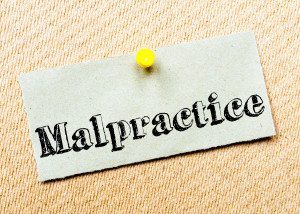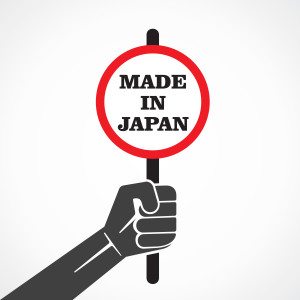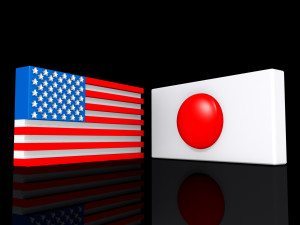 “What do you mean ‘my patent lapsed?’ You said You Were Going To Pay The Maintenance Fees.” – Anonymous Client
“What do you mean ‘my patent lapsed?’ You said You Were Going To Pay The Maintenance Fees.” – Anonymous Client
The failure to pay a maintenance fee when you agreed to do so can be a lawyer’s worst nightmare. The nightmare can be made even worse when, according to the patent owner, the patented technology is so valuable that the iPhone and iPad could not work without it, and the patent owner claims damages to the tune of $100 million. That is what is at the crux of a malpractice complaint filed September 30, 2015, in Massachusetts federal court by GPNE Corp. against its Boston-based patent firm, Occhiuti & Rohlicek, LLP.
While patent malpractice suits predicated on an alleged failure to pay maintenance fees are not unheard of, this one has a number of interesting complexities and raises a fundamental question of whether the federal district court is equipped to handle the matter or is the appropriate forum. These issues arise because most, if not all, of the legal issues involved–including infringement of a foreign patent, invalidity of a foreign patent, other defenses to infringement of a foreign patent, theories of damages for alleged infringement of the foreign patent within the foreign country, and professional malpractice –would appear to have to be decided in accordance with the substantive laws of a foreign nation–which in this case, is Japan.
The Malpractice Complaint
The complaint alleges that in 1992-93, Gabe Wong and Po Sing Tsui “collaborated to invent a system for two-way mobile communications.” As an “inventor-owned telecommunication licensing company,” GPNE allegedly maintains an international patent portfolio, including a Japanese data communications patent referred to as “the ‘796 patent.” The Japanese ‘796 patent, which was attached to the complaint without translation, supposedly covers high-speed LTE (“Long-Term Evolution”) data technology implemented in mobile “smartphone” devices. GPNE’s complaint asserts the technology it patented in Japan is “critical to high speed data transmission” and “[w]ithout it ‘smartphones’ like the iPhone would not be able to transmit data at speeds that consumers would consider adequate.”
 The complaint further alleges GPNE hired the Occhiuti law firm to “handle[] patent maintenance, prosecution, and re-examination for GPNE, including the maintenance of the Japanese ‘796 patent.” Under Japanese law, renewal fees are due on patents of any age that are granted at the Japanese Patent Office. Fees for the first to third years are due as a lump sum within 30 days of the decision to grant the patent. After then, the renewal fees are due annually. The complaint, however, fails to provide any details regarding what payment was due, or when.
The complaint further alleges GPNE hired the Occhiuti law firm to “handle[] patent maintenance, prosecution, and re-examination for GPNE, including the maintenance of the Japanese ‘796 patent.” Under Japanese law, renewal fees are due on patents of any age that are granted at the Japanese Patent Office. Fees for the first to third years are due as a lump sum within 30 days of the decision to grant the patent. After then, the renewal fees are due annually. The complaint, however, fails to provide any details regarding what payment was due, or when.
The complaint further alleges the Occhiuti firm “informed the service company for Japanese patents not to pay the renewal fee.” The “service company” is not identified in the complaint and is not (at least yet) a party to the case.
The complaint alleges that as a result of the law firm’s negligence, GPNE is entitled to $100 million. This amount, according to the complaint, is predicated on “information and belief” that “more than 40 million infringing iPhone and iPad devices have been sold in Japan” and “the average reasonable royalty in Japanese patent cases is 5 percent or more.”
Choice Of Japanese Law?
What is interesting about this case is that it appears to be based almost entirely on facts occurring in, or otherwise involving, Japan. In determining what law governs a particular controversy, Massachusetts courts apply a “functional” approach which considers factors such as:
a) The needs of the interstate and international systems, (b) the relevant policies of the forum, (c) the relevant policies of other interested states and the relative interests of those states in the determination of the particular issue, (d) the protection of justified expectations, (e) the basic policies underlying the particular field of law, (f) certainty, predictability and uniformity of result, and (g) ease in the determination and application of the law to be applied.
See Restatement (Second) Conflict of Laws, Section 6.
As stated above, the case involves the issuance of a Japanese patent, the maintenance of the Japanese patent, alleged infringement of the Japanese patent by whatever versions of the iPhone and iPad are made or sold in Japan, and damages predicated on infringing sales allegedly made in Japan. The only connection to the forum selected by the plaintiff seems to be that the defendant law firm is located in Massachusetts. But given all of the other “connections” this matter has to Japan, a good argument could be made that most, if not all, of these factors auger in favor of applying Japanese law.
 To be sure, under the case-within-a-case doctrine, the plaintiff is required to prove that it would have “won” the underlying “case.” If the malpractice plaintiff would not have won the underlying case, then the professional malpractice claim fails since the plaintiff cannot prove it suffered any cognizable loss harm notwithstanding any duty allegedly breached by counsel.
To be sure, under the case-within-a-case doctrine, the plaintiff is required to prove that it would have “won” the underlying “case.” If the malpractice plaintiff would not have won the underlying case, then the professional malpractice claim fails since the plaintiff cannot prove it suffered any cognizable loss harm notwithstanding any duty allegedly breached by counsel.
If the court determines that Japanese law applies, then given the nature of the allegations, the court must conduct a trial of a Japanese patent infringement case governed by Japanese law. The plaintiff must prove that its Japanese patent is infringed under applicable Japanese law, and it must further prove entitlement to damages as a matter of Japanese law.
On the defense side, the patent law firm is entitled to raise any issues available to it to establish the client would not have prevailed in the underlying lawsuit under Japanese law. Defendants in patent malpractice case normally raise the same issues defendants raise in patent infringement litigation – non-infringement, invalidity, unenforceability, and any other grounds for avoidance. All of these issues, it would seem, would have to be decided based upon the laws of Japan, as well as any other defenses available to a putative infringer under Japanese law.
Take, for example, as one issue, claim construction. This is often the deciding issue under U.S. law. The parameters for claim construction under U.S. law are well-known. But what is the relevance of claim construction to issues like infringement and invalidity under Japanese law? Is the burden of proof the same as in the U.S.? Who decides the meaning of claims allegedly infringed–a Japanese court? What evidence is relevant and not relevant under Japanese law? Do Japanese courts consider only the intrinsic record? Does Japanese law permit consideration of extrinsic evidence?
And then there is also the issue of legal malpractice. If the court determines that Japanese law applies, the court must then decide whether a cause of action exists under Japanese law for legal malpractice. If such a claim exists, then what are the elements? What defenses may be raised? What is the appropriate remedy for a putative legal malpractice claim under Japanese law?
Must The District Court Hear The Case?
The last, but yet most vexing, question is whether a U.S. court must hear this case. Subject matter jurisdiction is not in issue; the matter involves citizens of two different states and the amount in controversy exceeds $75,000.
The issue then is whether the court can avoid hearing the case because it appears to involve substantial and difficult questions of foreign law. Of course, federal courts may and do apply foreign law when it is pertinent to a matter. Here, however, it is the degree to which foreign law would have to be applied in deciding the case which is so troublesome. This is not just an isolated matter of interpreting a contract under Japanese law.
 Every issue that normally arises in a patent case can be raised and would need to be decided under Japanese law. Is a U.S. court equipped to adjudicate such a controversy? Is there another forum that is better equipped to hear such a controversy, such as a Japanese tribunal? And does it matter in the analysis whether a Japanese tribunal has personal jurisdiction over the U.S.-based law firm?
Every issue that normally arises in a patent case can be raised and would need to be decided under Japanese law. Is a U.S. court equipped to adjudicate such a controversy? Is there another forum that is better equipped to hear such a controversy, such as a Japanese tribunal? And does it matter in the analysis whether a Japanese tribunal has personal jurisdiction over the U.S.-based law firm?
Federal courts do, in very limited circumstances, have the power to abstain from hearing a case under various iterations of abstention doctrines. Under the so-called “Burford abstention” doctrine, for example, derived from Burford v. Sun Oil Co., 319 U.S. 315 (1943), a federal court sitting in diversity may abstain where state courts likely have greater expertise in a particularly complex area of state law. Burford allows a federal court to dismiss a case only if:
- The case presents “difficult questions of state law bearing on policy problems of substantial public import whose importance transcends the result in the case then at bar,” or
- The adjudication of the case in a federal forum “would be disruptive of state efforts to establish a coherent policy with respect to a matter of substantial public concern.”
Burford abstention is closely related to Thibodaux abstention, derived from Louisiana Power & Light Co. v. City of Thibodaux, 360 U.S. 25 (1959), which occurs when a federal court sitting in diversity jurisdiction chooses to allow a state to decide issues of state law that are of great public importance to that state, to the extent that a federal determination would infringe on state sovereignty.
Of course, these abstention doctrines appear only to apply when a state has a greater interest. Whether the doctrine has ever been applied when the interests involved raise difficult questions of foreign law is unclear. As of the time of this writing, I have been unable to locate a published decision raising Burford-type abstention applied when the competing interest is that of foreign forum or the interests of a foreign country. If such abstention rationale applies in the context of foreign jurisdictions, then it seems an argument could be made that the Massachusetts district court should abstain.
The Supreme Court often reminds us that federal courts are tribunals of limited jurisdiction. Just how limited could be a very interesting issue if raised in this case.